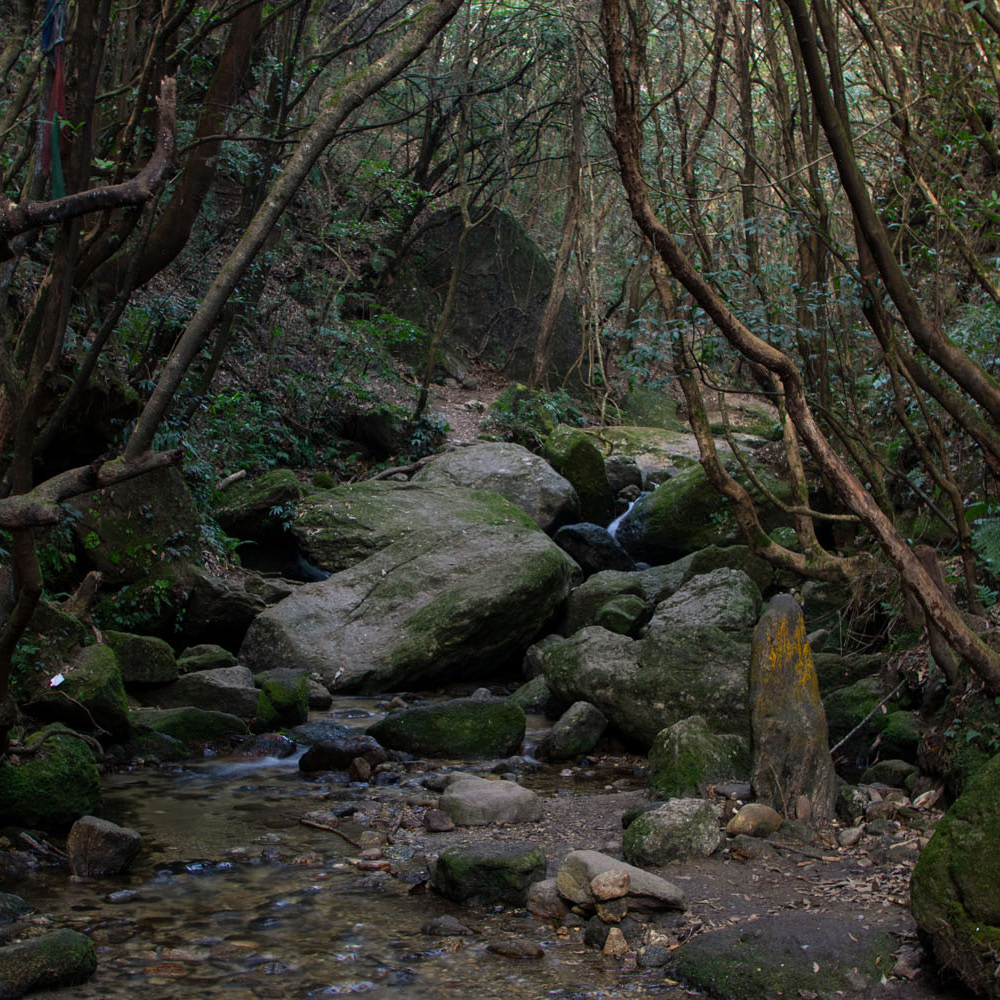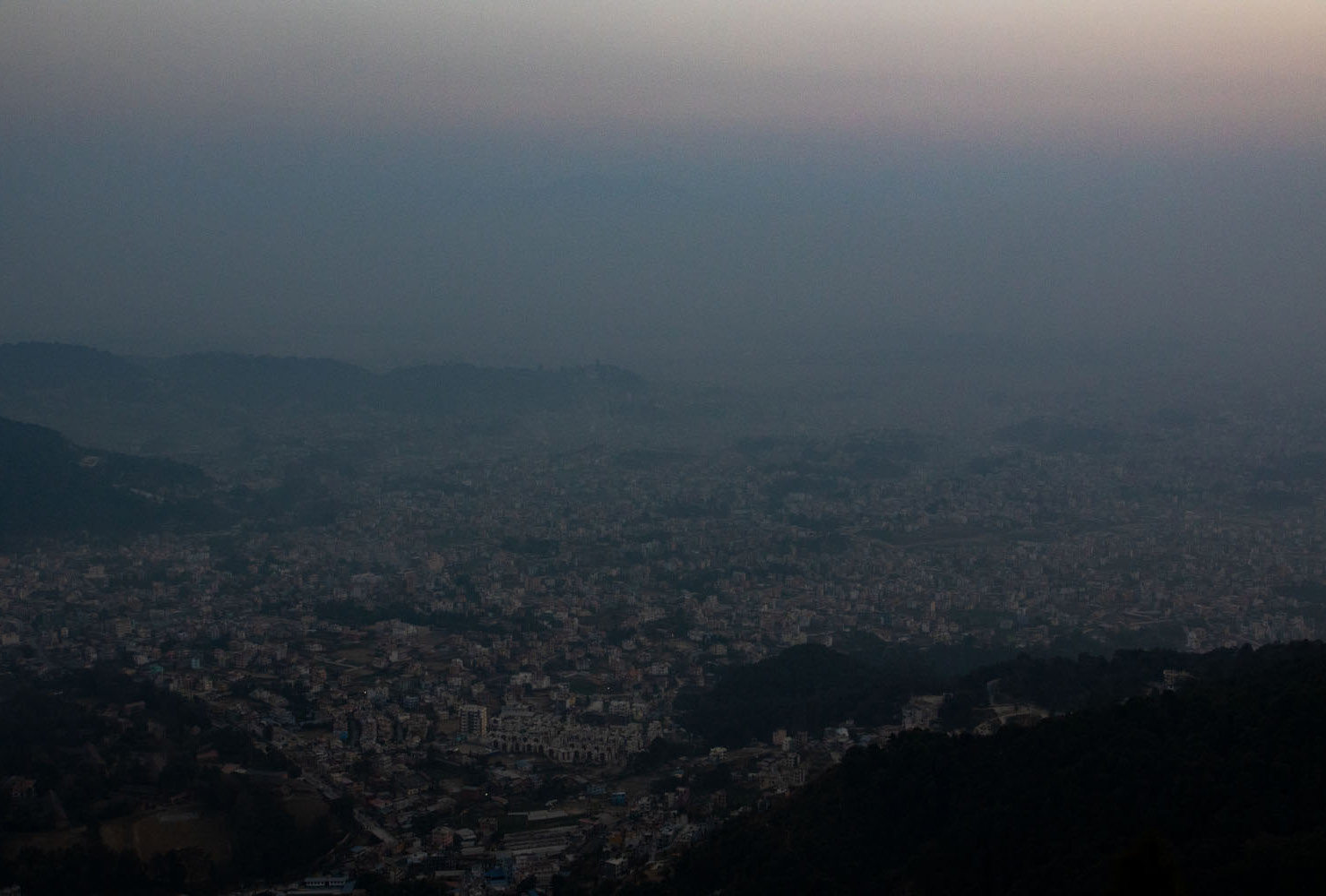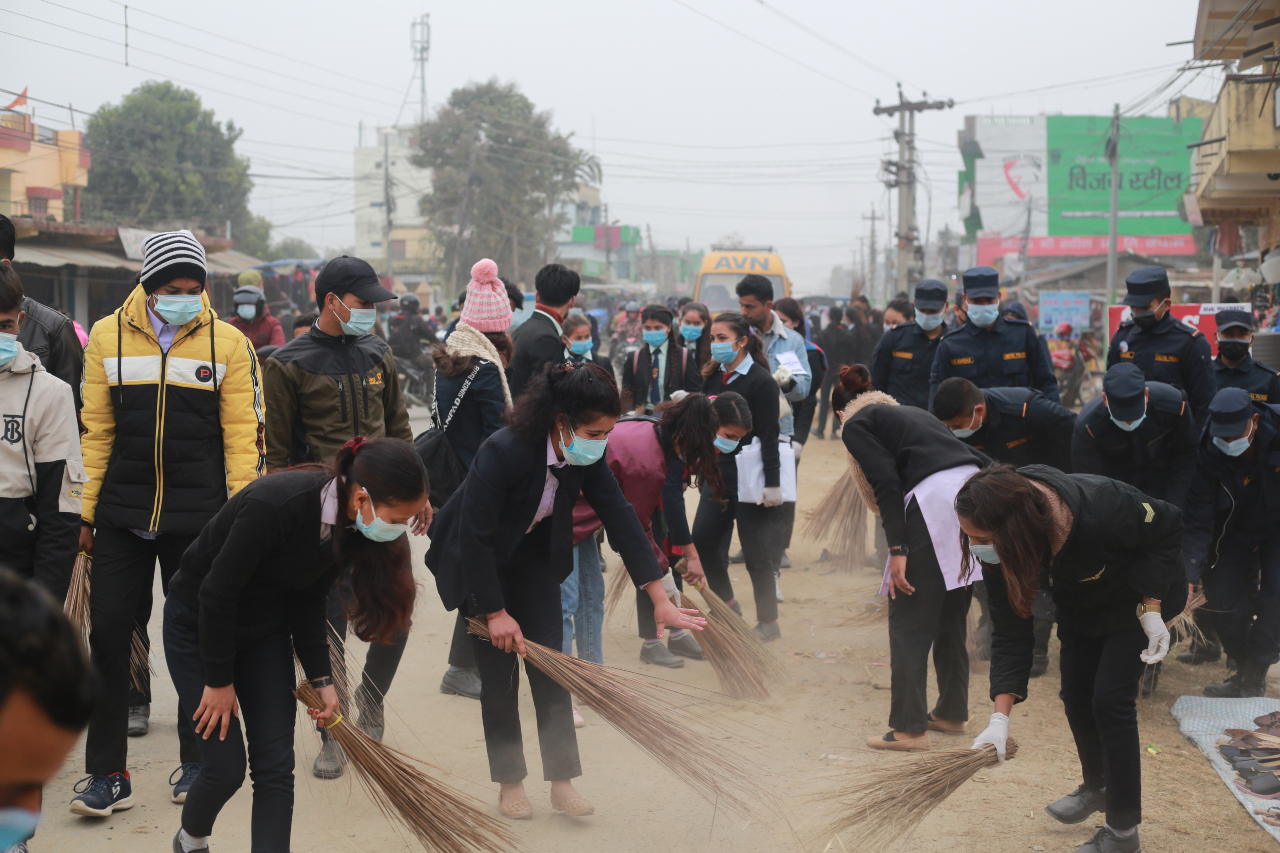Photo feature: Hiking to Bishnuduwar
Inside the Kathmandu valley, the Shivapuri National Park is considered one of the most convenient and accessible destinations for nature exploration. Located at the Shivapuri hill, Bishnudwar is a hidden gem awaiting exploration. It is the place of the origin of the Bishnumati River, one of Kathmandu’s major conduits. Bishnumati (“Beloved of Lord Bishnu”) has great religious and cultural significance for Hindus and Buddhists alike. By the same token, so has Bishnudwar (“The door from where Bishnumati begins”).
Located at the height of 1,950 meters, the hike to Bishnudwar starts from Budhanilkantha, Kathmandu. You can find a public vehicle or take your own private vehicle up to the Budhanilkantha temple area. A half hour walk will take you to the entrance of the Shivapuri National Park, where you pay Rs 100 entrance fee. After entering the national park, you walk towards the Shivapuri Hill, enjoying the fresh forest air. There are different routes with signboards to guide you inside the national park. Follow the signs to hike towards your destination.
Depending on your speed, a two-or-three hour hike will take you to the view point from where you can get a picturesque view of Kathmandu. Another one and half hours will get you to Bishnudwar. There are many hollow humid caves in the area and the river arises here, taking the form of a beautiful waterfall. Everything about this place is fresh and natural. From Bishnudwar, you have the option of either walking downhill or continuing your hike towards the Shivapuri peak.





KP Khanal: Face of Nepali youth activism
When scrolling your social media feed you may these days encounter posts of an initiative to clean Nepali highways under the catchy slogan of Ma Badlinxu Ani Mero Desh Badlinchha (“After I change, my country changes)”. Alongside, you will see plenty of praise for KP Khanal, a 21-year-old social activist.
It was on January 11 that Khanal and his team started the Maina Devi Foundation, a non-profit, to work on the environment, and launched the Highway Cleanliness Campaign under it from Kailali district of far-western Nepal. The campaign’s goal is to deter people from casually tossing out their waste on the highways by making them aware of their folly.
The foundation, with a core team of nine (and expanding), hopes to broaden the cleanliness campaign to cover the whole country. Another goal is to put pressure on the government to take pollution and environmental issues seriously.
Born on 11 January 2000, in Achham district, Khanal is often labelled ‘the youngest social activist’. Indeed, a student of social work at Texas International College, Kathmandu, Khanal started social activism from an early age.
After his parents migrated from Achham to Kailali, he began his education in Lamki municipality. There, aged 13 and studying in Grade VII, he started a radio program Bal Bahas (“Children’s debate”) on Radio Namaste, a local station in Tikapur. The program on child rights featured discussions and interviews. “That was when I started to seriously think about social work for the first time,” he recalls. He continued his radio work for three years until his Grade X exams.

After the exams, at the age of 15, he ventured to India and worked as a dishwasher in a Mumbai hotel. “People told me that I was unsuited for the job. But I enjoyed it and it was a wonderful learning experience,” Khanal says.
He returned to Nepal after the publication of his exam results and joined management faculty in Grade XI. This was when the budding radio presenter of the area turned into a serious social worker: by organizing a local cleanliness campaign with the help of some friends. They started cleaning the locality and requested people not to tie their cattle on the road. After a year of the program, he wanted to expand his social work outside the village. “I targeted the municipality with another campaign called Dasha Lageka Lai Dashain in the first phase of expansion,” he says. It was an attempt to feed the poor and helpless during Dashain, Nepal’s biggest festival. That was also when Khanal discovered the immense power of social media for welfare works.
At the time, Khanal urged people to donate money from what they had set aside to play cards or to indulge in various kinds of entertainment during the annual festival. He requested for help on Facebook and managed to collect around Rs. 250,000. “It was a lot more than we had expected in such a short time,” he says. Khanal celebrated that Dashain by helping around 50 families with food, grocery, and stationery items. His work now started getting noticed. “This only made me more determined to give continuity to my social works,” Khanal says.
One day, he heard of accidental deaths of some people from Humla; they had been travelling to Bajura to get salt and rice. Khanal immediately wanted to help their family members, as well as Humla’s other poor folks. Along with his friends, he this time raised around Rs 300,000. With the money, they went to Humla and helped 20 families there with food and groceries.
Khanal’s social work and activism did not stop in Kailali. He continued even after he came to Kathmandu, when he was only 17. In Kathmandu, he was greatly dismayed by the sight of garbage and all-round pollution. “I had a feeling that people like us should also be responsible for cleaning our environment, not just the government,” he remembers. After a month’s preparation, he started a campaign called “Clean Kasthamandap”. Around 1,700 people from governmental and non-governmental sectors, schools, colleges, and locals joined the cleanliness program on the Tinkune-Maitighar stretch.
The main goal of Clean Kasthamandap was to persuade people not to throw their waste carelessly. The Clean Kasthamandap team has since regularly cleaned up streets and public places, sometimes even at night, says Khanal.
While the cleanliness campaign continued, he came to know of some orphans in Bajura district who didn’t have anywhere to go. He went there, studied the situation, and decided to help build shelter homes for them. The team succeeded in collecting around Rs 500,000 in a year through a social media campaign, with which they built three buildings of four rooms each.
To maintain transparency, the names of all donors and their donations were listed on social sites (as the team does in all its campaigns).
Even the pandemic could not deter Khanal from social work. “This time I helped people of the far-west build toilets in their homes,” Khanal adds.
Khanal says no one should hold back from doing good for the shortage of funds. “Selfless social work always gets support,” he says, the support in his case coming from different organizations, business people, the public, and Nepalis living abroad.
When asked about the difficulties, Khanal says he focuses on his work not on difficulties. Yet sometimes, some people are skeptical about his work because of his young age, Khanal rues.
The biggest reward is self-satisfaction, says Khanal. “I sleep in peace,” Khanal says with a smile.
His suggestion for Nepali youth? “We should think about how we can contribute to social welfare rather than always blame our political leaders for everything,” he answers.
Says the recipient of the National Youth Council and Nepal Tourism Board’s National Youth Lead Award (2019), and The Rising Twinkle Foundation, New Delhi’s Youth Icon Award (2020): “Others may feel pity when they see those in difficulty. I get inspired to do something for them”.
Quick questions with Prallen Pradhan
If you could do so, what one thing would you change about yourself?
Time management. Usually I end up doing things at the last minute. K taal k taal?
One Nepali band, besides yours, that you'd love to be the part of?
I know I don't fit anywhere besides Catch 22.
Pub gig or arena rock?
Why not both?
What really makes you angry?
When someone tries to bend the simplicity of the fact.
What motivates you to work hard?
Success motivates me.
If you had to eat one meal every day for the rest of your life what would it be?
Dal, bhat, tarkari. That’s what brought me up.
Are you sunrise, daylight, twilight, or nighttime? Why?
Sunrise. The rest is unpredictable. You know what I mean.
What is the biggest lesson you’ve learned from a failure?
Still learning.
Who, from the Nepali music industry, inspires you the most?
A few of my friends with whom I grew up learning and doing music.
A message to young and upcoming musicians?
Keep doing music. Put your soul into it.
Photo feature: Ultimate Himalayan Motorland
Kathmandu gets a new place to rev up. The Ultimate Himalayan Motorland promises to be the breeding ground for the country’s motor-adventurists and an adrenalin-filled addition to the ‘Things to do’ list of visiting tourists to Nepal. The property sprawling over 4.4 acres has both tarmac and off-road race tracks, in the two firsts for Nepal. With motorsports as its theme, Ultimate Himalayan Motorland offers adventure sports as well as training. At the venue, one can participate in various recreational activities and get expert training. The Chairman for Ultimate Himalayan Motorland is Anil K. Baral and Diprash Shakya is the Managing Director.
The venue is open to individuals, groups and even corporate houses. The services available at the Motorland are venue hire, track hire, recreational Go-Karting, recreational racing and more. The property is also open for concerts, TV Shows, camping, bikers/car meets, exhibitions and auto shows.
An advocate of road safety and responsible driving, the Motorland offers various training programs such as racing training, marshal training, pit-crew training and road-safety training. The driving lessons range from beginners to advanced levels.
For the upcoming year, the company, which is affiliated to the National Sports Council, has already announced a list of races, including Racemandu, Crossmandu, Race Nari, Youth Karts Championship, Auto Gymkhana and other corporate and school-level competitions.
More information: https:// ultimatehimalayanmotorland.com






MD Diprash Shakya and Chairman Anil K. Baral






















